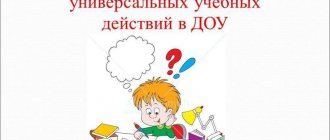Literary and musical evening dedicated to the life and work of M.Yu. Lermontov. Scenario
Literary and musical evening dedicated to the life and work of M.Yu.
Lermontova Author : Marushchak Yulia Nikolaevna, teacher of additional education. Center for Children's Creativity "Seeker" in Lytkarino, Moscow Region. Description of the material : the script can be useful for additional education teachers, teachers of theater clubs and studios, teacher organizers, and literature teachers. The scenario is designed for children over 13 years old. This scenario can be used to hold a literary evening in the classroom, or you can create one and invite guests. Goals : to immerse in the atmosphere of the artistic and creative life of M. Yu. Lermontov, to recreate the image of the poet as a person. popularization of the works of M.Yu. Lermontov. Objectives: to develop skills in creative perception and expressive reading of the poet’s works; to cultivate a desire to understand the poet’s inner world, to comprehend the depth of poetic thought, the beauty of artistic images; nurturing love and respect for the Russian language, the state language of the Russian Federation, improving etiquette norms of speech communication, developing a culture of speech; development of intellectual potential, creativity, skills of independent activity, self-realization, self-expression and personal qualities of students; improving communication skills; introducing students to 19th century literature; a closer touch to the Golden Age of Russian literature and reading as important factors in the preservation and development of Russian culture. Equipment: portrait of M.Yu. Lermontov, prints or reproductions of his paintings, a music center, musical compositions, several books with works by M.Yu. Lermontov. Note: to create the script, we used data from the poet’s biography taken from Wikipedia, poems by M.Yu. Lermontov, musical compositions by Talkov, Chopin, Khachaturian, DRedda, Lunachev, the group “Demiurges of Dreams”, “Cossack Lullaby”, Beethoven “Melody of Tears”, Mozart “Requiem”, Beethoven “Angel and Demon”. Progress of the evening . The first verse of Talkov’s song “In Memory of Viktor Tsoi” sounds. Lermontov Mikhail Yurievich was born on the night of 2 to 3 (15).10. 1814, Moscow (in the house of Major General F.N. Tolya opposite the Red Gate). Lermontov's work, which successfully combines civil, philosophical and personal motives, responding to the urgent needs of the spiritual life of Russian society, marked a new flowering of Russian literature. It had a great influence on the most prominent Russian writers and poets of the 19th and 20th centuries. Lermontov's works received a great response in painting, theater, and cinema. His poems became a true treasure trove for opera, symphony and romance, many of them became folk songs. “Cossack lullaby” sounds. To F. Chopin's Waltz No. 7 in C sharp minor: The Lermontov family came from Scotland and went back to the semi-mythical bard-prophet Thomas Learmonth. In 1613, one of the representatives of this family, lieutenant of the Polish army Georg (George) Learmonth, was captured by the Russians during the capture of the Belaya fortress and, among other so-called Belaya Germans, entered the service of Tsar Mikhail Fedorovich. He converted to Orthodoxy and became, under the name of Yuri Andreevich, the founder of the Russian noble family of Lermontov. Lermontov dedicated the poem “Desire” to his Scottish roots. Why am I not a bird, not a steppe raven, Flying over me now? Why can’t I soar in the skies And only the freedom to love? To the west, to the west I would rush, Where the fields of my ancestors bloom, Where in an empty castle, on the misty mountains, Their forgotten ashes rest. On the ancient wall their ancestral shield And their rusty sword hangs. I would fly over the sword and shield, And I would wipe the dust from them with my wing; And the Scottish harp would strike a string, And the sound would fly through the arches; We listen alone, and are awakened by one, As soon as it was heard, it would fall silent. But dreams are in vain, prayers are useless Against the strict laws of fate. Between me and the hills of my homeland the waves of the seas spread. The last descendant of brave fighters fades among the alien snows; I was born here, but not from here at heart. ABOUT! Why am I not a steppe raven?.. Mikhail’s childhood years, from March 1815, were spent in the village of Tarkhany, Chembarsky district, Penza province (now the village of Lermontovo, Penza region) on the estate of his grandmother E.A. Arsenyeva. Many years later, he recalled the impressions of his childhood and adolescence associated with the Tarkhanov estate and village: And I see myself as a child; and all around are native places: a tall manor house and a garden with a destroyed greenhouse. The sleeping pond is covered with a green network of grasses, And behind the pond the village is smoking - and fogs rise in the distance over the fields. I enter a dark alley; The evening ray peeks through the bushes, and the yellow leaves rustle under timid steps. As a boy of ten years old, his grandmother took him to the Caucasus, to the waters; here he met a girl of about nine years old - and for the first time an unusually deep feeling awoke in him, which left a memory for the rest of his life, but at first it was unclear and unsolved for him. Two years later, the poet talks about his new hobby and dedicates the poem “To the Genius” to him. When in the darkness of nights, without closing, my gaze wanders aimlessly around the past days of reproach When it involuntarily calls me to remember: What a heavy dream I indulge in!.. Oh, how many shadows and love witnesses suddenly crowd into my chest!.. I love! I repeat, having forgotten myself, to them. But, full of melancholy, the face of an unfaithful maiden flashes before me... So, I knew happiness, and the sweet moment disappeared, Like the shine of a falling star in the middle of the heavens! But I pray to you, my unchanging Genius: Let me love again! let the heat of inspiration warm you up for one moment, the last, and then let the ardor of your heart cool down forever. But first, where you are, the souls of my queen, the sound of my pensive horse will rush by! I beg you, I beg you, my guardian saint, Above the apple tree is my thyrsus and with the golden lyre Hang and draw: inspiration lived here! The singer knew the living raptures of love... ...And I will come here and not recognize you, O sonorous strings! ... Beethoven's “Melody of Tears” sounds. First love inextricably merged with the overwhelming impressions of the Caucasus. “The Caucasian mountains are sacred to me,” wrote Lermontov; they united everything dear that lived in the soul of the young poet. “The Caucasus - the harsh king of the earth” gave the teenager many vivid impressions and aroused in him intense activity of various emotions. Delight and fear, vague dreams of a different life, anxious aspirations for something that cannot be expressed in words, but which is tormented by the expectation of the beautiful, not similar to everyday life - all this erupted in his imagination, in his thoughts, unformed, confused in the complex a tangle of languid moods. “Blue mountains of the Caucasus, I greet you!” - he exclaims, remembering a few years later his life in the summer months on the mineral waters of Pyatigorye. - “You cherished my childhood, you carried me on your wild ridges; they dressed me with clouds; you accustomed me to the sky, and from then on I keep dreaming about you and the sky... How I loved your storms, Caucasus! those deserted, loud storms to which the caves, like guardians of the nights, respond.” And he repeated the motives of this “prose poem” in poems of the thirties: Greetings, gray Caucasus! I am no stranger to your mountains: They carried me in infancy and accustomed me to the desert skies. And for a long time I dreamed from then on All the sky of the south and the cliffs of the mountains. You are beautiful, the harsh land of freedom, And you, the eternal thrones of nature, When, like blue smoke, the clouds fly towards you from afar in the evening... From my early years, Your heat and the rebellious impulse of your storms have been boiling in my blood; In the north, in the country, I am a stranger to you in my heart, - always and everywhere yours!.. ………………… Your gray clouds curled like a crown over my childish head; When thunder rolled over them, And awakening from sleep, like sentinels, the caves responded all around, I understood their fatal sounds, I flew to the land above the stars with an ardent soul on a thunder chariot! Moscow, Moscow!.. I love you like a son, Like a Russian - strongly, passionately and tenderly, I love the sacred shine of your gray hairs, And this jagged, serene Kremlin exclaimed later Lermontov, overwhelmed with delight at the historical monuments of Moscow, and then, when as a teenager looked around Moscow, climbed the bell tower of Ivan the Great, stopped in front of St. Basil's Cathedral, remembering Ivan the Terrible, in front of the "mysterious Godunov Palace", in front of the "fantastic bulk - the Sukharev Tower, which bore the imprint of another century - an inveterate formidable power that nothing could resist" ; when he visited the Simonov Monastery, “especially remarkable for its hanging platform, almost between heaven and earth, from where our ancestors watched the movements of the approaching Tatars”; when he saw Poklonnaya Hill, “from where Napoleon took his first look at the Kremlin that was disastrous for him, from where for the first time he saw its prophetic flame; this formidable light that illuminated his triumph and his fall!..” “Moscow is not an ordinary city, of which there are a thousand,” said Lermontov, “Moscow is not a silent mass of cold stones, arranged in a symmetrical order... no! she has her own soul, her own life. Like in an ancient Roman cemetery, each stone contains an inscription inscribed by time and fate, an inscription incomprehensible to the crowd, but rich, abundant in thoughts, feelings and inspiration for a scientist, patriot and poet!..” On September 1, 1828, Lermontov was enrolled as a half-boarder to the fourth grade of the Moscow University Noble Boarding School. It was to 1828 that Lermontov himself dates the beginning of his poetic activity. Later, in 1830, he wrote: “When I began to scribble poems in 1828, I, as if by instinct, rewrote and tidied them up; I still have them.” Lermontov early began to realize that a true poet puts “his whole soul” into his works (“The Poet”, 1828). When Raphael, inspired by the Blessed Virgin, finished the sacred face with a Living brush, - Admired by his art, He fell in front of the painting! But soon this wonderful impulse grew weak in his young chest, and tired and dumb, he forgot the heavenly fire. Such is the poet: as soon as a thought flashes, He pours out his whole soul with his pen; With the sound of a loud lyre, the light enchants, and in silence Sings, lost in a heavenly dream, You, you! Souls are his idols! And suddenly the heat on his cheeks grows cold, His heartfelt emotions become quieter, and the ghost flees! But for a long, long time the mind retains the original impressions. The poet “with an active and ardent soul” at the boarding school became close to several comrades whom he considered his friends. He shared his experiences with them and dedicated his poems to them. Lermontov loved a friendly environment. The theme of friendship is one of the persistent ones in his poetry. He called friendship nothing more than “sacred”, “sweet”; It's sad to live without friendship. He loved to read his poems among friends and acquaintances; He often wrote them, intending them for listeners. Hence the declamatory method of address, characteristic of many of his boarding house poems. I was born with an ardent soul, I love to be with friends, and sometimes spend time over a bottle quickly. I am not inclined towards loud fame, Only love warms my heart; The lyre's sound is trembling, ringing. I also care about blood. But often, in the midst of fun, my Spirit suffers and is sad, In the noise of a violent hangover, Thought lies on my heart. As before, Lermontov is looking for his soulmate, is carried away by friendship with one or another comrade, experiences disappointments, is indignant at the frivolity and betrayal of his friends. The last time of his stay at the boarding school (1829) was marked in Lermontov’s works by an unusually gloomy disappointment, the source of which was a completely real drama in Lermontov’s personal life. The first essay “The Demon” and the poem “Monologue” date back to 1829. Believe me, insignificance is a blessing in this world. What is the use of deep knowledge, thirst for glory, talent and ardent love of freedom, when we cannot use them? We, children of the north, like the local plants, bloom for a short time, quickly fade... Like the winter sun on a gray sky, our life is so cloudy. So for a short time Her monotonous flow... And it seems stuffy in the homeland, And the heart is heavy, and the soul yearns... Knowing neither love nor sweet friendship, Our youth languishes amid empty storms, And quickly the poison of anger darkens it, And the cup of a cold life is bitter for us; And nothing pleases the soul. The Demiurge of Dreams “Demon” sounds. Lermontov declared that he would then turn to the “narrow path of salvation”, would begin to resemble mere mortals wandering the earth, when the “lava of inspiration” bubbling within him would subside, when “this wonderful flame, the all-burning fire” would be extinguished in him, when his the heart will turn into stone by the will of the creator when his “hungry gaze” stops; but can it be called life when fate frees him from the “terrible thirst for song”? Prayer (1829) Do not blame me, omnipotent, And do not punish me, I pray, Because I love the darkness of the grave earth With its passions; Because the stream of your living speeches rarely enters the soul; Because My mind wanders far from you in error; Because the lava of inspiration bubbles on my chest; Because wild unrest darkens the glass of my eyes; Because the earthly world is small for me, I’m afraid to get close to you, And often with the sound of sinful songs I, God, do not pray to you. But extinguish this wonderful flame, the all-burning fire, turn my heart into stone, stop my hungry gaze; Let me, creator, free myself from the terrible thirst for song. Then I will turn to you again on the narrow path of salvation. This self-characteristic of a fifteen-year-old teenager contains all of Lermontov, the most original of all his contemporaries-poets in terms of exceptional intensity of mental life, boundless burning of psychological experiences, rebellious willfulness and passionate faith in his high calling as a poet. He spends the summer in Serednikov, the estate of his grandmother’s brother, Stolypin, near Moscow. In the same summer of 1830, Lermontov’s attention focused on the personality and poetry of Byron. Lermontov’s “Ocean” sounds. Before leaving school, he transferred his poem “Spring” to the Athenaeum, which appeared under the signature “L” in the September book of 1830, in the journal of the inspector of the University boarding house. This was Lermontov's first printed poem: SPRING When broken ice in spring flows like an agitated river, When among the meadows in some places the bare earth turns black, And darkness falls like clouds on the hollow fields, Evil dreams cherish sadness In my inexperienced soul; I see that nature is getting younger, Only she can’t get younger: The scarlet flame on the cheeks of the calm will take time away with it, And the one who suffered so much, it happened, will not find love for her in his heart. Since September 1830, Lermontov was listed as a student at Moscow University, first in the “moral and political department”, then in the “verbal department”. At this time, Lermontov wrote lyrical poems, poems, dramas, including the drama “Strange Man” (1831), which condemned the government and serfdom. At the same time, the poet finished work on the poem “Confession”. DRedd “Confession” sounds. After clashes with the professors, who were irritated by Lermontov’s impudent behavior, the poet failed his exams. Lermontov did not want to stay for a second year and left the university and moved to St. Petersburg with his grandmother. In St. Petersburg, he tried to enter the university, but he was not credited for his two-year studies at Moscow University and was offered to enroll as a first-year student. On the advice of his friend Stolypin, Lermontov entered the school of guards ensigns and cavalry cadets, where he spent “two terrible years” (November 10, 1832 - November 22, 1834), filled with military drill, first with the rank of non-commissioned officer and then cadet. Junker's Prayer (1833) To the Heavenly King! Save me from a tight jacket, like from fire. Spare Me from marching, Don’t put Me in parade. Let Alekhine's voice disturb us as little as possible in the arena. Another prayer, please accept - This Sunday, give me permission to be late. I, the Almighty King, am good because I won’t bore you with unnecessary requests. Khachaturian sounds for the drama Masquerade. In fits and starts, Lermontov worked here on the novel “Vadim,” depicting episodes of the Pugachev uprising. In 1834, Lermontov graduated from school with the rank of cornet, served in the Life Guards Hussar Regiment, stationed in Tsarskoe Selo near St. Petersburg, but spent a lot of time in St. Petersburg. At this time, Lermontov becomes the soul of the company of local youth, leading the conversation, driving women crazy. Lermontov's creativity is usually divided into two stages: early (1829 - 1836) and mature (1837 - 1841). A sharp turning point in Lermontov’s work and fate was determined by the poem “The Death of a Poet” (1837) - an angry response to the death of A.S. Pushkin in January 1837. Poems condemning not only the murderer, but also the court nobility, the culprit of the tragedy, were distributed throughout Russia. Mozart "Requiem". They are reading “The Death of a Poet” (the site did not miss a large number of letters). At first, the poem ended with the words: “And the seal is on his lips.” In this form, it quickly spread through the lists, caused a storm of admiration, and aroused indignation in high society. When Stolypin began to reproach Pushkin in front of Lermontov, proving that Dantes could not have acted differently, Lermontov immediately interrupted the conversation and, in a fit of anger, wrote a passionate challenge to the “arrogant descendants.” And you, arrogant descendants of the famous meanness of the famous fathers, trampled down the wreckage with the heel of a slave in the Game of happiness of the offended childbirth! You, standing in a greedy crowd at the throne, executioners of Freedom, Genius and Glory! You are hiding under the canopy of the law, Judgment and truth are before you - keep quiet!.. But there is also God’s judgment, confidants of depravity! There is a terrible judgment: it awaits; He is not accessible to the ringing of gold, And he knows thoughts and deeds in advance. Then in vain you will resort to slander: It will not help you again, And you will not wash away the righteous blood of the Poet with all your black blood! Behoven "Melody of Tears" In March 1837, by order of the Tsar himself, Lermontov was arrested for distributing the last 16 lines of the poem “The Death of a Poet.” Then there was a trial, which was observed by the Emperor himself; Pushkin's friends stood up for Lermontov, first of all Zhukovsky, who was close to the Imperial family; in addition, his grandmother, who had secular connections, did everything to soften the fate of her only grandson. Prisoner (1837) open me a dungeon, give me the radiance of the day, a black -eyed girl, a black -priest horse. I will smear the beauty in a beauty sweetly, then I will jump on the horse, in the steppe, like a wind, I will fly away. But the prison window is high, the door is heavy with the lock; Black -eared far away, in his lush tower; A good horse in a green field without depths, one, by the will, jumps cheerful and playing, dismissing his tail in the wind. I am alone - there is no reflections: the walls are naked, the lamp beam is dimly shining with dying fire; It is only audible: behind the doors with sonorous-dimensional steps walks in the silence of the night-free sentry. Some time later, Kornet Lermontov was translated by “the same rank”, that is, a warrant officer, to the Nizhny Novgorod Dragoon Regiment operating in the Caucasus. The poet went into exile, accompanied by general attention: there was a passionate sympathy and a hidden enmity. Lermontov’s stay in the Caucasus lasted only a few months. Despite the short duration of the service, Lermontov managed to change a lot in moral terms. The impressions of the nature of the Caucasus, the life of the highlanders, the Caucasian folklore formed the basis of many of his works. The Caucasus has updated long -standing dreams; "Demon" and "Mtsyri" are created. The waltz of Chopin sounds. In the New Year 1840 M.Yu. Lermontov was at a masquerade ball in a noble assembly. The Turgenev presented there observed how the poet was “haunting, constantly picked up to him, took him by the hands; One mask was replaced by another, and he almost did not leave the place and silently listened to their squeak, alternately turning his gloomy eyes to them. I thought at the same time, ”says Turgenev,“ that I caught his beautiful expression of poetic creativity on the face. ” As you know, this masquerade was inspired by its full bitterness and longing for the poem “First of January”. How often, with a variety of crowds, is surrounded by a variety of crowds, as if through a dream, with the noise of music and dancing, with a wild whisper of hardened speeches, the images of soulless people, tightened masks, flash of my cold hands with the careless courage of the beauties of the city’s long -termlesslessly intact Hands,- outwardly plunging into their brilliance and vanity, I caress in my soul an old dream, the dead of the holy sounds. And if I manage to forget myself somehow for a moment, I fly by my memory for the recent antiquity with a free, free bird; And I see myself as a child, and all around all the places: a tall lord house and a garden with a destroyed greenhouse; A sleeping pond is pulled with a green network of herbs, and the village is smoking behind the pond - and fogs stand over the fields. I enter the dark alley; The evening beam looks through the bushes, and yellow sheets make noise under timid steps. And a strange longing crowns my chest; I think about her, I cry and love, I love my dreams of my creation with eyes full of azure fire, with a pink smile, like a young day for a grove of the first glow. So the kingdoms of the marvelous omnipotent gentleman - I spent one for many hours, and their memory is still alive under a storm of painful doubts and passions, like a fresh island harmlessly in the middle of the seas in their wet desert. When, recalling, I find out the deception and the noise of a crowd of people frightens my dream, an uninvited guest, oh, how I want to confuse their cheerfulness and boldly catch their eyes with an iron verse, doused with bitterness and anger! .. In February 1840 Countess de Laval Balu took place with an duel with E. de Barant, the son of the French ambassador, for which Lermontov was devoted to the military court and was again sent to the Caucasus to the Tengin Infantry Regiment (by order of April 9). Read “Listen! Remember me ... ”As a member of a heavy battle under the Valerik River in Chechnya, he presented himself twice to awards (one of them is a gold saber with the inscription“ For courage ”), but the king, not wanting to facilitate the fate of the poet, rejected these ideas. In February 1841, Lermontov was allowed a short vacation to the capital for a meeting with the grandmother E.A. Arsenyeva, but soon, full of gloomy forebodings, he was forced to go to the regiment again. In the last months of his life, Lermontov created his best verses - “Homeland”, “Cliff”, “Dispute”, “Leaf”. Homeland (1841) I love my homeland, but with strange love! My mind will not win. Neither the glory bought by blood, nor the full proud trust of peace, nor dark antiquity cherished trends will move a joyful dream in me. But I love - for what, I don’t know myself - her steppes are cold silence, her forests of vast signs, spills of her rivers, similar to the seas; I like to jump in a cart in a cart and, slowly piercing a shadow in a cart and a slow look, to meet around, sighing about an overnight stay, trembling lights of sad villages; I love the smoke of a bedroom chewing, in the steppe the night wagon and on the hill in the yellow field of whitening birches. With a joy, many unfamiliar, I see a complete gum, a hut, covered with straw, with carved shutters, a window; And on the holiday, in the evening with diverse, to look until midnight is ready to dance with stomp and whistle under the dialect of drunken peasants. The last work of the poet is the Prophet. Read the "Prophet" on the way to the regiment of M.Yu. Lermontov lingered for treatment in Pyatigorsk. A large company of cheerful youth lived here - all the long -standing friends of Lermontov. “The public,” recalls Prince A.I. Vasilchikov,- lived together, fun and somewhat rampant ... Time took place in noisy picnics, cavalcades, parties with music and dancing. Beethoven "Angel and Demon." In this company was a retired Major Martynov, who loved to posture, draw, draw attention to himself. Lermontov often evilly and caustically furious him behind the “pretense of Byronism”, for “terrible” poses. Between them there was a fatal quarrel, which ended with a “ever -sad” duel. The poet fell victim to his duality. Delicate, responsive to a small circle of the elect, he always held on to all other acquaintances always arrogantly and fervently. The nearby Martynov belonged to the latter and did not understand "at that moment the bloody, to which he raised his hand." Regarding this tragic death, V.G. Belinsky wrote: "... a new, great loss orphaned poor Russian literature." It's time to fall asleep with the last dream, I lived quite in the world; They would deceive life in everything, and hating and loving. Lermontov acted in Russian literature as the heir and successor A.S. Pushkin, in the era, when the noble revolutionary (after the defeat of the Decembrist movement in 1825) was looking for new development paths. Already the youthful poetry of L. was imbued with a passionate dream of freedom, contained calls for action (poems “The complaints of the Turk”, “monologue”). The weakening of the social movement painted his work in pessimistic tones, but at the same time the poet’s sharply -critical view of modernity began to take shape; Already in the early verses I found an expression of his longing for the ideal. Developing many artistic principles of Pushkin, Lermontov expressed a new stage in the development of Russian social consciousness, and this determined the deep originality of his poetry.
We recommend watching:
Literature lesson in grade 7, type II On the origin of phraseological units Byron's Morning Star. Love story of an outstanding poet Extracurricular event at school dedicated to the opening of the Year of Literature in Russia
Similar articles:
Literary readings, 5th grade
Extracurricular activity 7th, 8th grade in mathematics
Extracurricular activity in 8th grade
Extracurricular event for 8th and 9th grades on the Day of the Elderly
Extracurricular activity on literature 8th grade
Summary of the event “Lermontov by heart”
MBDOU d/s No. 8 “Teremok”, Pyatigorsk, Stavropol Territory
Educators
Link to the article, when indicated in the bibliography (according to GOST R 7.0.5–2008):
Spitsyna N.Z., Senchuk E.V. Summary of the event “Lermontov by heart” // Sovushka. 2020. No. 1. URL: https://kssovushka.ru/e-sovushka.2016.n1-a/ZP15120064.html (access date: 10.10.2020).
Integration of educational areas: “Cognitive development”, “Speech development”, “Artistic and aesthetic development”. Goal: mastering the poetic heritage of M.Yu. Lermontov. Objectives: Educational: acquaintance with the years of life and work of the outstanding Russian poet M. Yu. Lermontov, arouse interest in studying the works of the poet and the time of residence in the city of Pyatigorsk. Developmental: development of children's musical and creative abilities through the poetic works of M. Yu. Lermontov, which have genuine artistic value through various types of musical and creative activities. Educating: nurturing an emotional and value-based attitude towards the poetic art of one’s people; nurturing in children an interest in the creative process, a sense of self-realization and relevance in society. Equipment and material : illustrations and photographs reflecting the life and work of the poet, illustrations of paintings by M.Yu. Lermontov “Memories of the Caucasus”, “Tiflis”, “Self-Portrait”, projector, audio equipment, musical compositions based on poems by M.Yu. Lermontov “Cossack Lullaby Song”, “Sail”, “Heavenly Clouds”, film “Borodino”. Preliminary work: conversations about the life and work of M.Yu. Lermontov, looking at illustrations and photographs “Tarkhany”, “Caucasus”, reading and memorizing the poems “Clouds”, “The Sail Whitens...”, “Cliff”, “Autumn”, an excerpt from the poem “Borodino”.
APPENDIX: Presentation for the summary of the event “Lermontov by heart”
Progress of the event
Invited guests, children of senior and preparatory groups gather to the music of the 18th century.
1 slide. Portrait of M.Yu. Lermontov
(Fanfare sounds, the presenter comes to the center of the stage) Ved. Today in our kindergarten there is a very significant event, on the birthday of the great Russian poet Mikhail Yuryevich Lermontov, the thematic event “Lermontov by heart”. I invite the participants of our holiday, meet the children of the senior and preparatory groups of kindergarten No. 8 “Teremok” (boys in hussar costumes, girls in ball gowns). (With musical accompaniment, children enter the hall in pairs and sit on chairs)
2 slide. Panorama of the Caucasus and Pyatigorsk.
Ved. Every year our city celebrates the birthday of the outstanding poet M.Yu. Lermontov. The fate of this poet and writer is inextricably linked with the Caucasus, where you and I live, and with our city of Pyatigorsk. Today's meeting is dedicated to the memory of Mikhail Lermontov. His life and work.
3 slide. Family of M.Yu. Lermontov (mother, father, M.Yu. Lermontov in childhood)
Ved. Mikhail Yurievich Lermontov was born many years ago in Moscow. Father - Yuri Petrovich Lermontov held the rank of captain. He came from an old Scottish family. Mother - Marya Mikhailovna came from an old and rich family of Stolypins.
4 slide. Grandmother of M.Yu. Lermontov, 5th slide. Tarkhany, 6 slide Furnishings in the house
Ved. Mikhail Yuryevich was raised by his grandmother Elizaveta Alekseevna in her family estate “Tarkhany” in the Penza province. Elizaveta Alekseevna surrounded her grandson with care and affection, sparing no expense to develop Mikhail’s diverse talents. Since childhood, Mikhail Yuryevich wrote poetry, drew, was fond of music, and mastered the French and German languages perfectly.
Slide 7 Types of the Caucasus.
As a child, Lermontov was sick a lot. A serious illness confined him to bed for a long time. Then Elizaveta Alekseevna left with her grandson for treatment in the Caucasus. These trips brought Lermontov so many impressions. In the Caucasus, for the first time he saw snowy mountain peaks, sulfur springs flowing on Mashuk, steppe for dozens of miles, stormy and fast rivers. Nature endowed the poet with great abilities. He was amazingly musical - he played the violin, piano, sang and composed music based on his own poems. While pondering poetic lines, Lermontov loved to draw and, according to the testimony of his relative, Lermontov began to draw almost earlier than to write poetry. And, if he had been engaged in painting professionally, he could have become a real artist.
Slides 8 to 12. Paintings painted by M.Yu. Lermontov
Ved. Guys, look at some pictures. When Mikhail Lermontov graduated from the Moscow cadet school and put on an officer's suit for the first time, his grandmother ordered a ceremonial portrait of her grandson from the artist.
Slide 13 Portrait of M.Yu. Lermontov in an officer's suit.
Ved. M.B. Lermontov loved to attend balls and dance until the morning, and now we will go to a ball, where the valiant hussars will show military bearing and invite cute young ladies in straw hats to dance. (the boys come out, march, then the girls run out) Dance “Hussar - aty, baty” (dancers sit down) Ved. And now we will touch upon the poetic work of the great Russian poet M.Yu. Lermontov. I invite you to the stage:
Slide 14 Sail 1. Reading the poem “Sail” 15 slide. Autumn 2. Reading the poem “Autumn” 16 slide. Pine 3. Reading the poem “In the Wild North...” 17 slide. Angel 4. Reading the poem “Angel”. 18 slide. Clouds 5. Reading the poem “Cloud”
Ved. In Pyatigorsk, where his life was cut short, they honor his memory and are especially sensitive to everything connected with his name. For more than a century, in the very heart of the city, a house under a reed roof has been preserved, which became the poet’s last refuge.
Slide 19 Lermontov's house
Ved. The first monument to Mikhail Yuryevich Lermontov appeared in the park nearby.
20 slide. Monument to M.Yu. Lermontov
Ved. Not far from the house there is the Tsvetnik park, famous at that time, where people relax and hold balls.
21 slides. Park "Flower Garden"
Dance "Waltz" by Strauss (boys invite girls) (children take their seats)
Ved. Mikhail Yuryevich Lermontov loved to think alone. The well-known grottoes became such places. Here Mikhail Lermontov composed many of his works. These are Lermontov's grotto and Diana's grotto.
22 slide. Lermontov's Grotto 23 slide. Diana's Grotto
Ved. We continue to delight our guests with poems by M.Yu. Lermontov. I invite you to the stage:
24 slide. Cliff 1. Reading the poem “Cliff”
25 slide. Cradle with baby
(a group of girls comes out, take baby dolls and handkerchiefs from the cradle) (sing a lullaby, take the babies to the cradle and sit down)
26 slide. Battle
Ved. Duels were prohibited in Russia. Lermontov was punished and sent into exile; he stayed for a month in Moscow, which was preparing for a great celebration - the 25th anniversary of the Battle of Borodino. The poet writes the poem "Borodino".
View slides and listen to the poem "Borodino".
Slide 27 Duel
Ved. Returning to Pyatigorsk from exile, Lermontov continued to participate in duels. The young officer Martynov challenged M.Yu. Lermontov to a duel. Unfortunately, the poet dies in this duel. You and I know very well the place where this happened and we often bring flowers to the monument.
Slide 28 – Slide 29 Place of M.Yu. Lermontov’s duel
The duel took place on July 15, where Lermontov was mortally wounded. Mikhail Yuryevich was buried at the Pyatigorsk cemetery.
30 slide. Grave of M.Yu. Lermontov
Ved. Later, at the request of his grandmother, the poet was reburied in Tarkhany in the family crypt.
31 slides. Crypt
Ved. This is how the life and work of the outstanding poet, musician, artist M.Yu. sadly ended. Lermontov. How many wonderful works of art he created during his short life. And we will cherish the memory of this great and talented man forever!
32 slide. Screensaver
Ved. This is how the life and work of the outstanding poet, musician, artist M.Yu. sadly ended. Lermontov. How many wonderful works of art he created during his short life. And we will cherish the memory of this great and talented man forever!
Word from the head of the kindergarten. — The poems of M.Yu. Lermontov have become an integral part of any educated person in Russia. In Pyatigorsk on October 14, 2015, on the eve of the great poet’s birthday, a poetry marathon “Lermontov by heart” will be held. We are proud that we live in Pyatigorsk, where M.Yu. Lermontov worked. Today we become participants in this marathon. Once again we heard the wonderful works of M.Yu. Lermontov, which our children and their parents prepared. Thank you all very much!
Ved. Our holiday has come to an end. We thank all participants, see you again. (children leave the hall to the music, then guests)
Literature
- Photos dedicated to M.Yu. Lermontov internet bing.com/images
- Biography of M.Yu. Lermontov Collected works Moscow “Fiction” 1976, part 1
- Film "Borodino" internet bing.com/video







